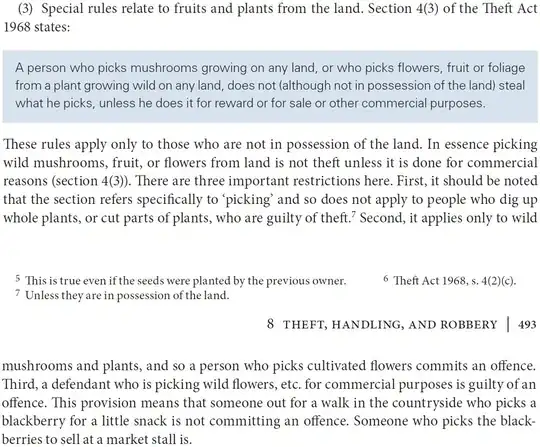The Theft Act 1968 replaces the Larceny Act 1916, which replaces in part the Larceny Act 1901, ad nauseum. In the current act, the exception is accomplished in the definitions section. Redefinition is a device commonly used by legislatures to clarify intent, where traditional wording does/did not express the desired prohibition. In addition, a special definition excluding a case makes it easier to define the general rule.
To be certain, one would need a historical record of legislative discussion (and I suspect that there is no record), but it is reasonably likely that it was not previously against the (common) law to pick a wild blackberry for a snack.
A reading of various prior versions of the larceny statutes suggests that it was never a crime to pick a wild blackberry, instead the crime was taking cultivated goods (which a person put some effort or resources into creating), and destroying resources on a person's land. Those are the kinds of actions explicitly identified in the prior statutes.
§4(3) does state a traditional view of "property" (which is why it's in the "property" section), and
would have the (presumptively desired) effect without complicating other parts of the statute. Moreover, s1(3)(a-b) of the 1916 act conveys similar "exceptionality".
Norwegian theft law has a similar provision
Tilegnelse av naturprodukter, herunder stein, kvister, vekster mv., av
liten eller ingen økonomisk verdi under utøvelse av lovlig
allemannsrett, straffes likevel ikke
Appropriation of natural products, including stones, twigs, vegetation
etc. with little or no economic value (taken) under the exercise of
the legal right to roam is not punished
